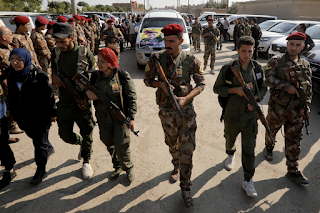Turkey, Syria and U.S. Foreign Policy

Since entering Syria on the 9th of October, the Turkish army has only continued its assault on Kurdish forces in north-east Syria, and the consequences have been dire. Over 160,000 civilians have fled the Turkish-Syrian border, and according to Kurdish sources, hundreds of IS fighters have escaped from prisons abandoned by the Syrian Democratic Forces (SDF) in the face of Turkish invasion.
While the circumstances surrounding Turkey's current involvement in Syria are complex, the major factors at play remain clear. In part, the conflict has been the indirect result of economic hardship in Turkey. With the recent drop in the nation's GDP, and with unemployment on the rise, animosity toward Syrian immigrants in Turkey, as well as toward the president's former open-door policy, has been at an all-time high, making the decision to relocate Syrian migrants to recently vacated territory in northern Syria a logical one from Erdogan's point of view.
Recent decisions by the U.S., however, have also played a role in the conflict. As former allies of Kurdish forces in the fight against I.S., the United States' withdrawal from northern Syria in September on the orders of President Trump was, put simply, all the encouragement Turkey needed to put their plan of securing a "safe zone" across the border into action. The consequences of this conflict, therefore, ought to serve as a reminder of the risks of U.S. foreign policy.
Sources:
https://www.bbc.com/news/world-middle-east-50250330
https://www.cnn.com/2019/10/15/politics/us-troops-syria-anger/index.html
https://www.washingtonpost.com/world/2019/10/07/brief-history-syrian-democratic-forces-kurdish-led-alliance-that-helped-us-defeat-islamic-state/
Sources:
https://www.bbc.com/news/world-middle-east-50250330
https://www.cnn.com/2019/10/15/politics/us-troops-syria-anger/index.html
https://www.washingtonpost.com/world/2019/10/07/brief-history-syrian-democratic-forces-kurdish-led-alliance-that-helped-us-defeat-islamic-state/



Comments
Post a Comment